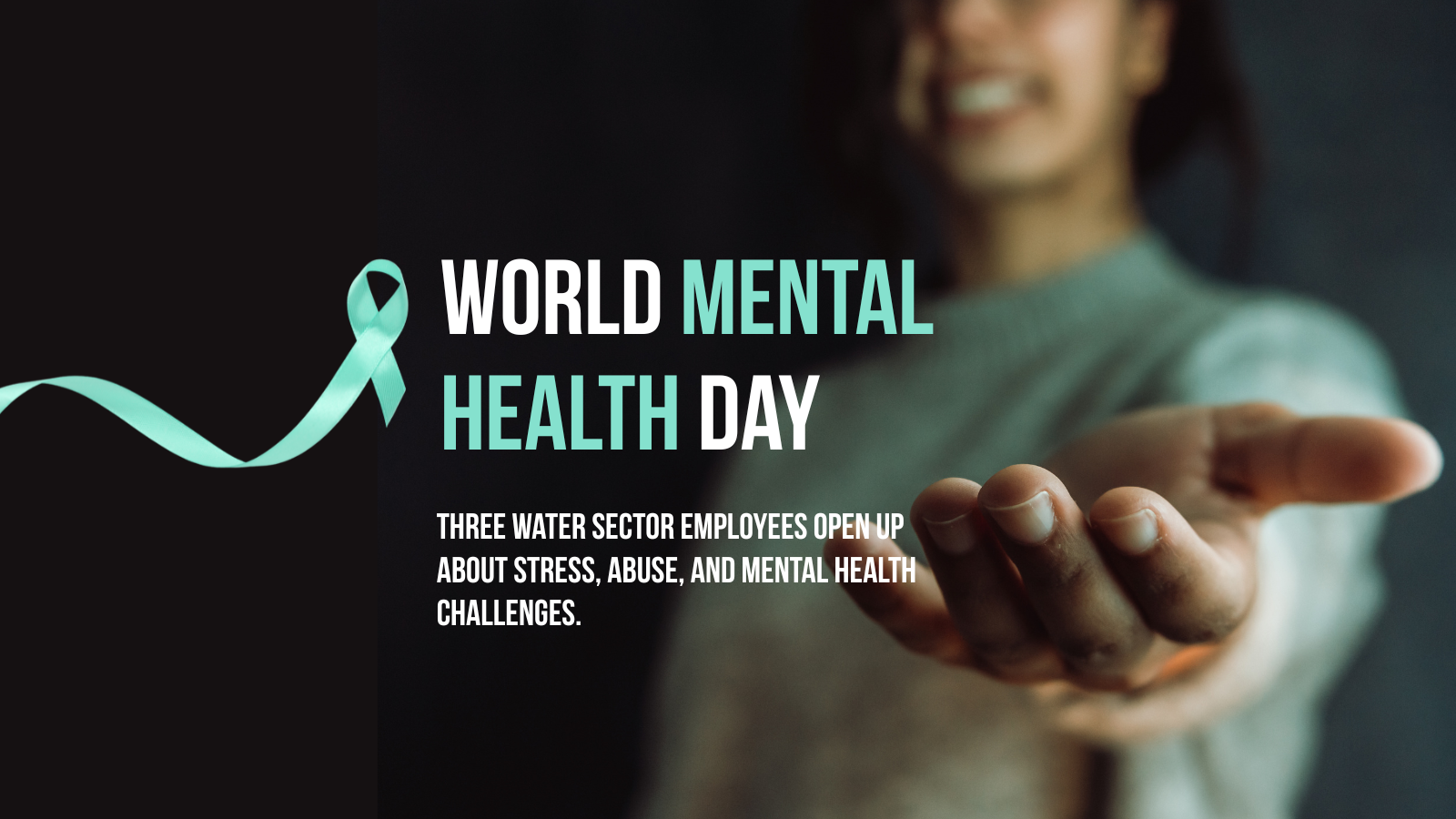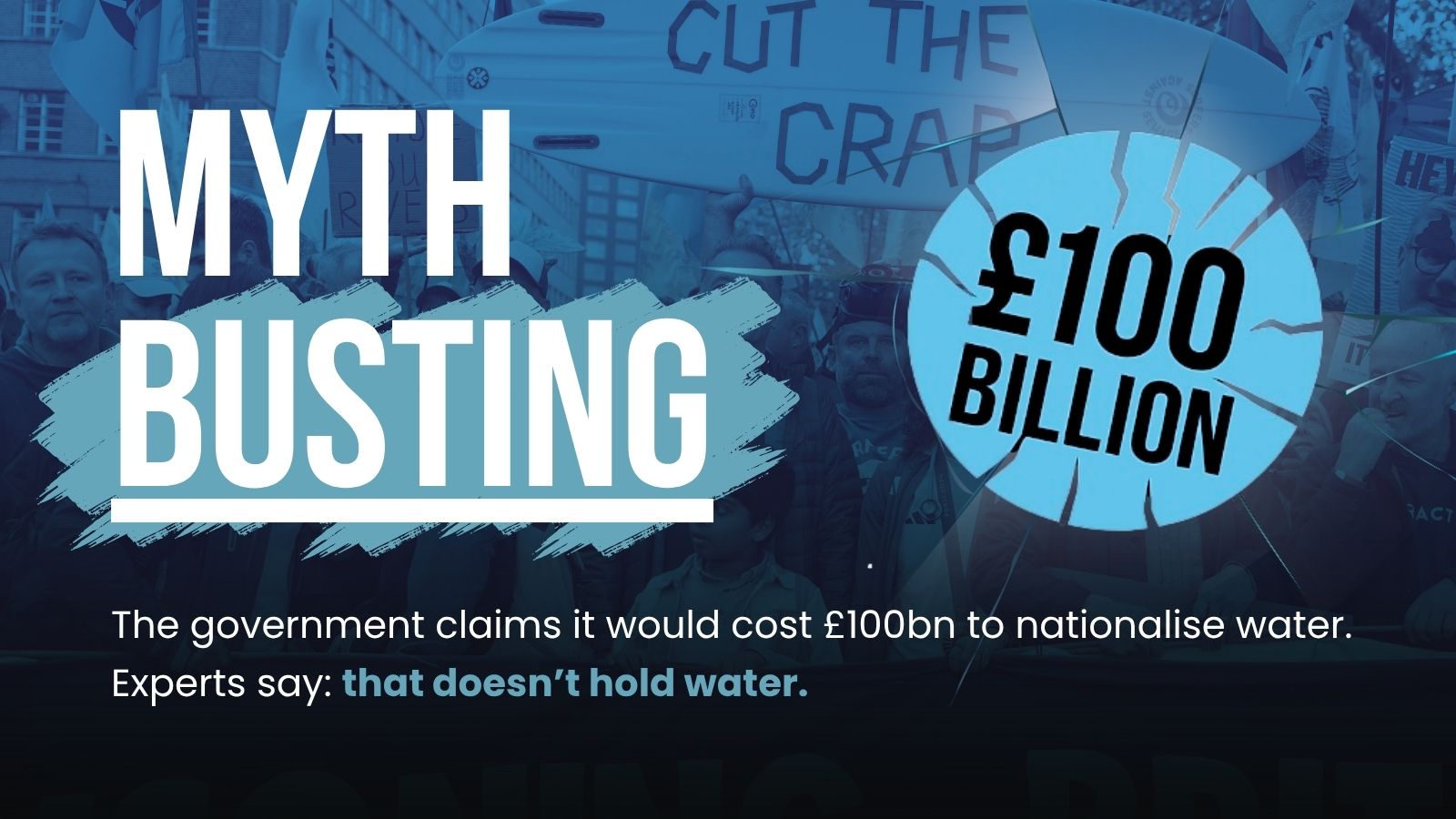
Introducing Ian Woolverton, Senior Media Coordinator at River Action

We are thrilled to welcome Ian Woolverton as our Senior Media Coordinator at River Action! In our latest blog, we get to know more about Ian and the role that he will play to help rescue Britain’s rivers.
Tell us about yourself?
I grew up poor in the seventies and eighties in the Midlands. It was a time of racial tension, mass unemployment, the miner’s strikes and so on. But it was also a time of great social change, Ska music, black players, for the first time, in the local football teams, West Bromwich Albion especially (for the record, I am a life-long Wolves supporter!). Despite the poverty, I loved Wolverhampton. I had mates from all sorts of backgrounds – Hindus, Sikhs. It was ace.
My nan, who helped raise me and worked as a cleaner at the Wolverhampton branch of the NatWest set something off in me about social justice, fighting for fairness and a more progressive society.
It was an insalubrious childhood, but I am indebted to my wonderful grandmother who put me on the right path; we’d sit in her kitchen, watching the evening news discussing how the world could be fairer, kinder. Our conversation would often centre on politics, fighting injustice, look out for the vulnerable. Then we’d giggle at Blankety Blank and Are you Being Served?
My nan was a wise, kind, and loving woman. She had the single most important influence on me growing up.
I was a terrible student. Always gazing wistfully out of the window. I liked English but I drifted; that is until I was asked at college to write a piece of journalism about the fall of the Berlin Wall. I loved writing it, but my German teacher convinced herself it was plagiarism. She scoured newspapers for the article I had allegedly pinched! That was the light bulb moment for me, writing, journalism.
I pursued it and as a result I have carved out a terrific career in media relations for social justice causes. I started at Shelter in the nineties, where some of my mates from that time are now MPs.
Then, almost on a whim, I emigrated to Australia and kicked off a 22-year career in the humanitarian sector. This led to me covering most of the major crises of the last two decades; from the 2004 Indian Ocean tsunami to the genocide in Darfur, the violence perpetrated against the Rohingya people and much, much more beside. For two decades I travelled the world with my work. It was an incredible privilege, and I met many fantastic people from a plethora of cultures and communities. I loved it. The lad from Wolves seeing the world!
I’ve always enjoyed writing, but my first love is photography. You can view my work here.
What first sparked your interest in river protection?
As a child raised in urban poverty in the Black Country, finding nature was revolutionary in my life.
Today, as a keen nature lover living on the edge of the Lake District National Park, I have witnessed the appalling damage done to places like Lake Windermere, now contaminated with human poo, agricultural pesticides, and fertilisers.
If we allow the wilful destruction of England’s most famous lake, what hope for our rivers? As the climate crisis becomes more urgent, more present in our lives, it demands that we protect our rivers; and the species and fragile eco-systems that rely on them for existence. Covid has reminded us just how important access to green space and nature is; more than ever River Action represents our needs and our rights in this regard, facilitating our relationship with and sense of belonging to the landscapes and rivers of Britain.
You have over 20 years of experience leading media comms in the humanitarian sector – including for NGOs, Red Cross, and WHO. What have been the biggest challenges that you have faced in these roles and what have been your biggest achievements thus far?
It is an exhilarating sector to work in with so much going on all the time. I would say that the biggest challenges come from working cross-culturally but that also comes with massive reward too. You are never ‘off the clock’, so it can be exhausting. There is always a humanitarian story breaking somewhere in the world.
Mentally it is very taxing work. I was dealing with a lot of death and destruction. It takes a toll seeing, over and over, just how horrible humankind can be to itself. Then again, you get to see the very best of people in extremely challenging environments; you end up realising that compassion and kindness outweigh the cruelty. I look back on the career I had in the humanitarian sector and sometimes I’m amazed I managed to do it for so long.
Don’t get wrong me, it was a humbling experience to have witnessed many of the most devastating humanitarian crises of the last two decades. I got to report on them, work with the world’s media, draw attention to terrible humanitarian suffering; and hopefully do it in a way that empowered people whose story I was helping to tell.
I did witness lots of horrible stuff too, so you need to manage your mental health very well in that world.
A personal high point for me was the award of the Australian Government’s Humanitarian Overseas Service Medal. It is an official award in the Australia’s honours system. Handing that medal over to my nan and seeing her beam; golden cherished moment.
Tell us about your role as River Action’s Senior Media Coordinator. What can we expect to see from your role in the coming months?
In terms of my role with River Action. Blimey, where do I start? I have joined at a very exciting time. It’s only mid-February and already we’ve generated hundreds and
hundreds of high-profile media stories this year so far. Suddenly, at least it seems to me, the nation is alive to the risk pollution poses to our rivers.
The nation is rightly angry and wants more done to protect them. We’ve got a bunch of exciting campaigns up this year, and I hope to play my part by working with the media to fight for the health of the nation’s rivers.
I am particularly interested in how we can broaden our reach and involve people from less privileged backgrounds, or under-represented backgrounds; people like me who grew up in places that are not top of mind for rivers. How do we reach out to people on council estates, perhaps living in high rise towers? They have just as much as right to benefit from a healthy river as someone who is fortunate to live nearby one.
And finally, In your opinion, what needs to change in order to rescue Britain’s rivers?
That is easy. The enforcement of existing environmental laws designed to protect to our rivers. We’ve got some great laws in this country that, if enforced, would do a lot of good for our rivers; and send a powerful message to polluters that we are coming for you.
Remember, 2024 is most likely a general election year. Therefore, if you care about river health, help us hold the water companies and industrial-scale agricultural polluters accountable; as well as kicking the regulators – Ofwat, DEFRA the Environment Agency – up the jacksie to demand they do the job they are paid to do; enforce the law to protect our rivers.
You can contact Ian at: ian@riveractionuk.com






